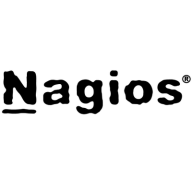

Nagios XI and Meraki Dashboard compete in the network management category. Nagios XI appears to have the upper hand in customization and monitoring capabilities, while Meraki Dashboard leads in ease of use and cloud integration.
Features: Nagios XI offers deep customization through script creation, monitoring a broad range of network services with extensive plugins, and providing a customizable dashboard. Meraki Dashboard provides seamless cloud-based management, a single pane of glass for a consolidated view, and intuitive controls for simple navigation.
Room for Improvement: Nagios XI could enhance clustering and failover support, integrate better with ticketing systems, and improve the user interface for non-technical users. Meraki Dashboard might benefit from improved integration with various hardware, a focus on user-friendliness, and reduced dependency on subscription-based pricing models.
Ease of Deployment and Customer Service: Nagios XI is suited for on-premises or private cloud environments and often relies on community support due to its technical complexity. Meraki Dashboard offers straightforward deployment across different cloud environments but may require professional support despite comprehensive customer service.
Pricing and ROI: Nagios XI provides a cost-effective solution through its free community version, with higher costs for the commercial version offering full features. Its open-source nature supports ROI through immediate deployment on inexpensive hardware. Meraki Dashboard, priced per device with various license tiers, is seen as more expensive but justified by its cloud management and integration advantages, leading to significant ROI through time savings in management efforts.


Meraki Dashboard is a comprehensive cloud-based platform that offers centralized management and control for all Meraki networking and security products. It provides a user-friendly interface, allowing administrators to easily monitor and configure their network infrastructure from anywhere. With real-time visibility, troubleshooting becomes effortless, ensuring optimal performance and minimizing downtime.
The intuitive dashboard offers a holistic view of the network, enabling quick identification of potential issues and proactive measures. It simplifies network deployment and scaling, with zero-touch provisioning and automatic firmware updates. The robust security features include advanced threat protection, content filtering, and VPN connectivity.
Meraki Dashboard also offers powerful analytics and reporting capabilities, providing valuable insights into network usage, application performance, and user behavior. With its seamless integration and scalability,
Meraki Dashboard is the ideal solution for organizations of all sizes, ensuring efficient network management and enhanced productivity.
Nagios XI provides monitoring of all mission-critical infrastructure components, including applications, services, operating systems, network protocols, systems metrics, and network infrastructure. Third-party add-ons provide tools for monitoring virtually all in-house and external applications, services, and systems.
Nagios XI uses a powerful Core 4 monitoring engine that provides users with the highest levels of server monitoring performance. This high degree of performance enables nearly limitless scalability and monitoring powers.
With Nagios XI, stakeholders can check up on their infrastructure status using the role-based web interface. Sophisticated dashboards enable access to monitoring information and third-party data. Administrators can easily set up permissions so users can only access the infrastructure they are authorized to view.
Nagios XI Benefits and Features
Some of the benefits and top features of using Nagios XI include:
Reviews from Real Users
Nagios XI stands out among its competitors for a number of reasons. Several major ones are its integration options and monitoring abilities, as well as its alerting features.
David P., a senior DevOps engineer at EML Payments Ltd, writes, “We use Nagios as a network discovery tool. We use Nagios to maintain our uptime statistics and to monitor our services. It has allowed us to be much more sophisticated in our monitoring and alerting.”
An IT-OSS manager at a comms service provider notes, “Nagios XI has a custom API feature, and we can expose custom APIs for our integration. This is a great feature.”
We monitor all Network Monitoring Software reviews to prevent fraudulent reviews and keep review quality high. We do not post reviews by company employees or direct competitors. We validate each review for authenticity via cross-reference with LinkedIn, and personal follow-up with the reviewer when necessary.